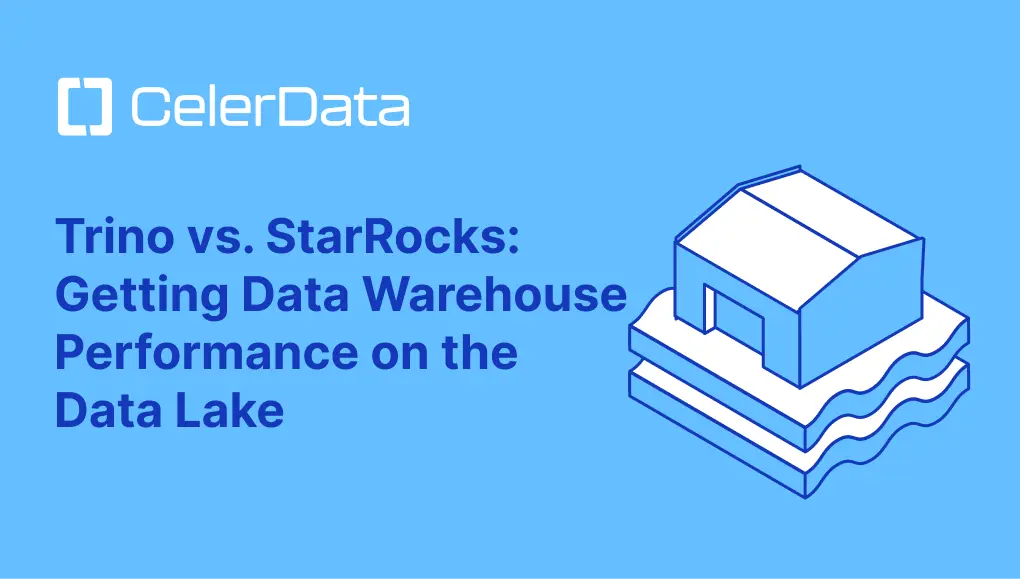
Metadata Management

Join StarRocks Community on Slack
Connect on SlackWhat Is Metadata Management
Definition of Metadata
Metadata refers to the data that provides information about other data. Metadata includes details such as the origin, format, and context of the data. Metadata serves as a guide for understanding and utilizing data effectively. Metadata has evolved over time from analog formats to digital systems, enhancing the way information is organized.
Types of Metadata
Metadata can be categorized into several types:
-
Descriptive Metadata: Provides information about the content and context of the data.
-
Structural Metadata: Describes the organization and structure of data.
-
Administrative Metadata: Includes information about the management and use of data.
Generic metadata standards like the Dublin Core Metadata Element Set offer essential elements to describe data. These standards, however, may lack specificity for different disciplines.
Examples of Metadata
Examples of metadata include:
-
A book's title, author, and publication date.
-
A photograph's resolution, dimensions, and date taken.
-
A dataset's source, format, and date of creation.
Metadata plays a crucial role in digital preservation planning. Metadata holds valuable descriptive information that allows future access to digital objects.
Importance of Metadata Management
Metadata Management begins with organizing and controlling metadata to enhance data usability. Metadata management is critical for ensuring data integrity and accessibility across an organization.
Benefits for Organizations
Effective Metadata Management offers numerous benefits:
-
Improved Data Quality: Ensures data accuracy and consistency.
-
Enhanced Data Governance: Facilitates compliance with regulations and standards.
-
Increased Data Usability: Makes data more accessible and understandable to users.
Metadata Management transforms raw data into valuable enterprise assets. This transformation fosters trust and collaboration among teams.
Challenges in Metadata Management
Organizations face several challenges in Metadata Management:
-
Complexity: Managing diverse types of metadata across various platforms.
-
Integration: Ensuring seamless integration of metadata with existing systems.
-
Scalability: Handling the growing volume of data and metadata.
Overcoming these challenges requires a robust Metadata Management strategy. Organizations must prioritize the development of effective metadata practices to maximize data value.
The Value of Metadata Management
Metadata management plays a crucial role in enhancing the quality and governance of data. Organizations rely on metadata to ensure data accuracy and consistency, which are vital for effective decision-making. Metadata serves as a bridge between raw data and actionable insights, making it an indispensable asset for data teams.
Enhancing Data Quality
Metadata management significantly improves data quality by ensuring data accuracy and consistency. Accurate metadata provides a clear understanding of data origins and transformations. This clarity helps data stakeholders make informed decisions based on reliable information. Consistent metadata ensures that data remains uniform across various systems and platforms. This uniformity reduces errors and discrepancies, leading to higher data quality.
-
Improving Data Accuracy: Metadata acts as a guide for data managers. It helps them collect and interpret data accurately. Metadata provides essential details about data sources and transformations. These details enable data teams to maintain high standards of data quality.
-
Ensuring Data Consistency: Consistent metadata ensures uniformity in data representation. This uniformity is crucial for maintaining data integrity across different systems. Consistent metadata supports data standards and facilitates seamless data integration. This integration enhances the overall quality of data assets.
Facilitating Data Governance
Metadata management is integral to effective data governance. It provides the framework for compliance and security, ensuring that data remains trustworthy and secure. Metadata enables organizations to establish clear data standards and policies. These standards guide data teams in managing and protecting core data assets.
-
Compliance and Regulations: Metadata management helps organizations comply with regulations and standards. Metadata provides detailed records of data lineage and usage. These records are essential for demonstrating compliance with legal and industry requirements. Compliance ensures that data stakeholders trust the organization's data practices.
-
Data Security and Privacy: Metadata management enhances data security and privacy. Metadata provides insights into data access and usage patterns. These insights help organizations identify potential security risks and protect sensitive information. Effective metadata management ensures that data remains secure and private, fostering trust among data stakeholders.
The University of Washington's Knowledge Navigator project exemplifies the importance of robust metadata management. This initiative enabled the organization to oversee changes and deliver trusted, secure data in a complex data integration environment. The project demonstrated how solid metadata management tools contribute to holistic system management.
Related Terms and Concepts
Understanding related terms and concepts in metadata management provides a comprehensive view of its role in data governance. These concepts help organizations manage their data assets effectively.
Data Management
Data management involves organizing, storing, and maintaining data to ensure its accessibility and reliability. Effective data management supports decision-making processes and enhances data quality.
Data Governance
Data governance establishes policies and procedures for managing data throughout its lifecycle. Organizations use data governance to ensure data quality, security, and compliance with regulations. A robust governance framework helps organizations maintain trust in their data assets. Data governance is essential for controlling information usage and ensuring its availability.
Data Stewardship
Data stewardship focuses on the responsibility of managing data assets. Data stewards oversee data quality and ensure adherence to governance policies. They play a crucial role in maintaining data accuracy and consistency. Data stewardship ensures that data remains a valuable asset for the organization. Effective stewardship supports data-driven decision-making and enhances organizational efficiency.
Information Architecture
Information architecture involves structuring and organizing data to facilitate easy access and usability. A well-designed information architecture enhances data discoverability and user experience.
Taxonomy
Taxonomy refers to the classification and categorization of data. Organizations use taxonomy to create a structured framework for organizing data elements. A clear taxonomy improves data discoverability and usability. It helps users find relevant data quickly and efficiently. Taxonomy supports data governance by standardizing data definitions across the organization.
Ontology
Ontology defines the relationships between data elements. It provides a framework for understanding how data elements interact within a system. Organizations use ontology to enhance data integration and interoperability. A well-defined ontology supports data governance by ensuring consistent data representation. It facilitates collaboration and communication among data stakeholders.
Secoda plays a significant role in metadata management by supporting these related concepts. Secoda enhances data quality through effective data governance and stewardship. The tool provides a comprehensive view of data assets, enabling organizations to manage their metadata efficiently. Secoda's integration capabilities support taxonomy and ontology development, improving data discoverability and usability.
Future Trends in Metadata Management
Metadata management continues to evolve with the integration of emerging technologies and evolving best practices. Organizations must stay informed about these trends to maintain effective data strategies.
Emerging Technologies
AI and Machine Learning
Artificial Intelligence (AI) and Machine Learning (ML) are transforming metadata management. These technologies enhance the process by capturing real-time metadata and maintaining accurate data lineage. AI and ML can make metadata recommendations and identify invalid or missing data. This active approach ensures that data remains up-to-date and reliable. Organizations benefit from improved data quality through automated insights and predictions.
Blockchain
Blockchain technology offers a decentralized approach to metadata management. This technology provides a secure and transparent way to track data changes and ensure data integrity. Blockchain records every transaction, creating an immutable history of data interactions. This feature enhances trust and accountability in data management practices. Organizations can leverage blockchain to improve data quality and compliance with regulations.
Evolving Best Practices
Automation in Metadata Management
Automation plays a crucial role in modern metadata management. Automated processes streamline metadata capture and organization. This efficiency reduces manual errors and enhances data quality. Automation supports consistent metadata updates across various systems. Organizations achieve better data governance by implementing automated metadata management solutions.
Collaborative Metadata Management
Collaborative metadata management encourages teamwork and communication among data stakeholders. This practice involves sharing metadata insights and responsibilities across teams. Collaboration fosters a shared understanding of data assets and their value. Organizations benefit from improved data quality and decision-making through collective efforts. Collaborative approaches ensure that metadata remains accurate and relevant.
Conclusion
Metadata management holds significant importance in the realm of data governance. Organizations benefit from improved data quality and enhanced decision-making capabilities through effective metadata practices. Metadata serves as a crucial component in digital preservation, ensuring future accessibility and discoverability of digital objects. Beginners should explore further and apply these concepts to harness the full potential of metadata. A robust understanding of metadata management empowers individuals to contribute meaningfully to organizational success.



.jpg)